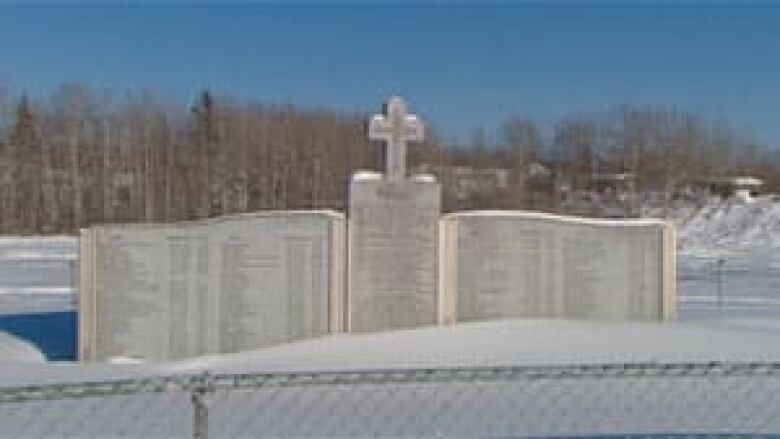Documented N.W.T. residential school deaths too low
About 300 children buried in Fort Providence mission school grave alone
The Truth and Reconciliation Commission's Missing Children Project says up to 222 students died at residential schools in the N.W.T., but more than that are buried at Fort Providence, N.W.T.,alone.
Former Deh Cho Grand Chief Sam Garganwas overcome with emotion as he looked over acommon grave where residential school children were buriedin Fort Providence.
The cemetery belonged to the Sacred Heart Mission school,which he attended as a boy.
"For them to perish like this their parents must have been pretty heartbroken, I would think," he said. "It's a terrible way to go."

A monument was erected by the community to honour the students that lay within the 12- by 18-metre grave.
"Some of the students that are named on this monument are buried over there," said Gargan. "There's 300 names over here."
The Truth and Reconciliation Commissions Missing Children Project saysup to 3,000 students died throughout Canadain Indian Residential Schools.
Alex Maass, of the Missing Children Project, said problems at the Sacred Heart Mission were well known.
"They knew children were being infected with tuberculosis, for example, when they arrived at the schools in part because of the dormitory arrangements that kids slept in," she said.
"And that information was getting back to the school authorities and to the government of the day."
Maass said a lack of documentation makes it hard to unravel the numbers. The Truth and Reconciliation Commission is trying to change that by creating a national registry for anyone who wants to look up a missing relative.
Gargan said it's about time more attention is placed on the students that never made it home.
"It's good that it is finally coming out, because I think the numbers are important," he said.













_(720p).jpg)


 OFFICIAL HD MUSIC VIDEO.jpg)
.jpg)



























































































